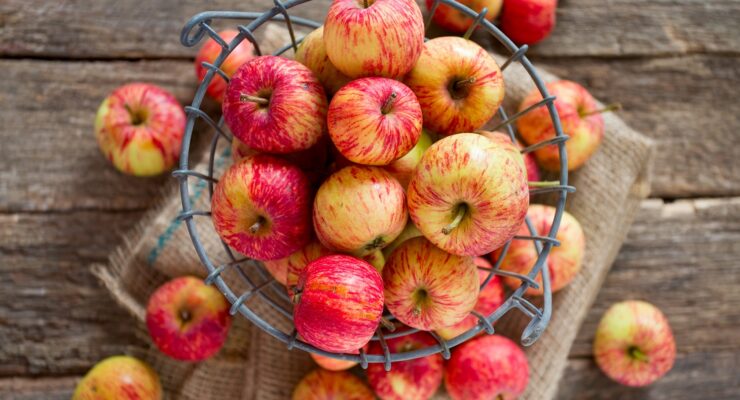Want to Be Happy? Science Says Eat More of These
Article posted in: Diet & Nutrition
You don’t need a team of scientists to tell you that eating a healthy diet helps you feel better physically, which improves your mental and emotional state, too. However, a team of researchers have documented that the mood and outlook of people picks up significantly when they increase their consumption of produce. Here’s the skinny on the study results and a few other reasons that eating a lot of fruits and veggies makes you happy:
Happiness Effect
A study published in the August 2016 edition of the American Journal of Public Health concluded that people who increase their consumption of fruits and vegetables report feeling happier. The researchers analyzed food diaries kept by more than 12,000 adult participants between 2007 and 2013 and correlated them with survey questions about their lives and their mental and emotional health. Participants who went from eating almost no fruits and vegetables a day to eight portions a day scored an increase on a complex point scale in “life-satisfaction” that was the emotional equivalent to finding a new job. On the other hand, those who didn’t eat more portions of fruit and vegetables experienced a drop in happiness score over the same period that was about equivalent to losing a job. The researchers determined that adding even two portions a day yields a quarter of the happiness effect. In fact, happiness benefits were detected for each extra daily portion of fruits and vegetables up to eight portions a day.
Taste Bud Satisfaction
Whether you’re spooning up melon, biting into a crunchy apple, or tucking into a salad of many colors and textures, the naturally delicious flavors of fruits and vegetables are a treat for your taste buds. Eating a variety of produce satisfies the whole range of tastes that we all crave. When your taste buds are happy, you are content after meals and less likely to feel hungry or hanker for unhealthy foods.
Full of Fiber
Whole fruits and vegetables are an essential source of fiber, the roughage that helps food move smoothly through your digestive tract. Fiber can be soluble or insoluble, and most fruits and veggies contain a mixture of the two. Soluble fiber turns to gel in the stomach and slows digestion, which helps lower cholesterol and blood glucose. Insoluble fiber passes through your body without changing, making the waste in your system heavier and softer so it can get through your intestines more easily. Eating plenty of fiber not only keeps you feeling full long after you eat, it makes your visits to the bathroom simple and easy. If you’ve ever been constipated (haven’t we all at one time or another?), you know it doesn’t make for a happy you.
Packed with Nutrients
Eating can be one of life’s pleasures, but it’s true purpose is to provide us with all the nutrients essential for both a healthy body and a strong mind. The most nutrient-dense foods—those that give you the highest concentration of vitamins and minerals in each bite—are fruits and vegetables. When you’re deficient in vital nutrients, you can feel fatigued, have trouble concentrating, and for many of us, turn into a total grump. Plenty of fruits and vegetables in your diet wards off the deficiency blues.
Unlimited for You
Non-starchy vegetables are so packed with nutrients, high in fiber and low in calories you can eat as much of them as you want, even when you’re on a Nutrisystem weight loss plan. That’s right, you can load your plate with vegetables at mealtime and munch on them whenever hunger strikes throughout your day. Eating as much as you want, whenever you want? Now that’s something to smile about.












